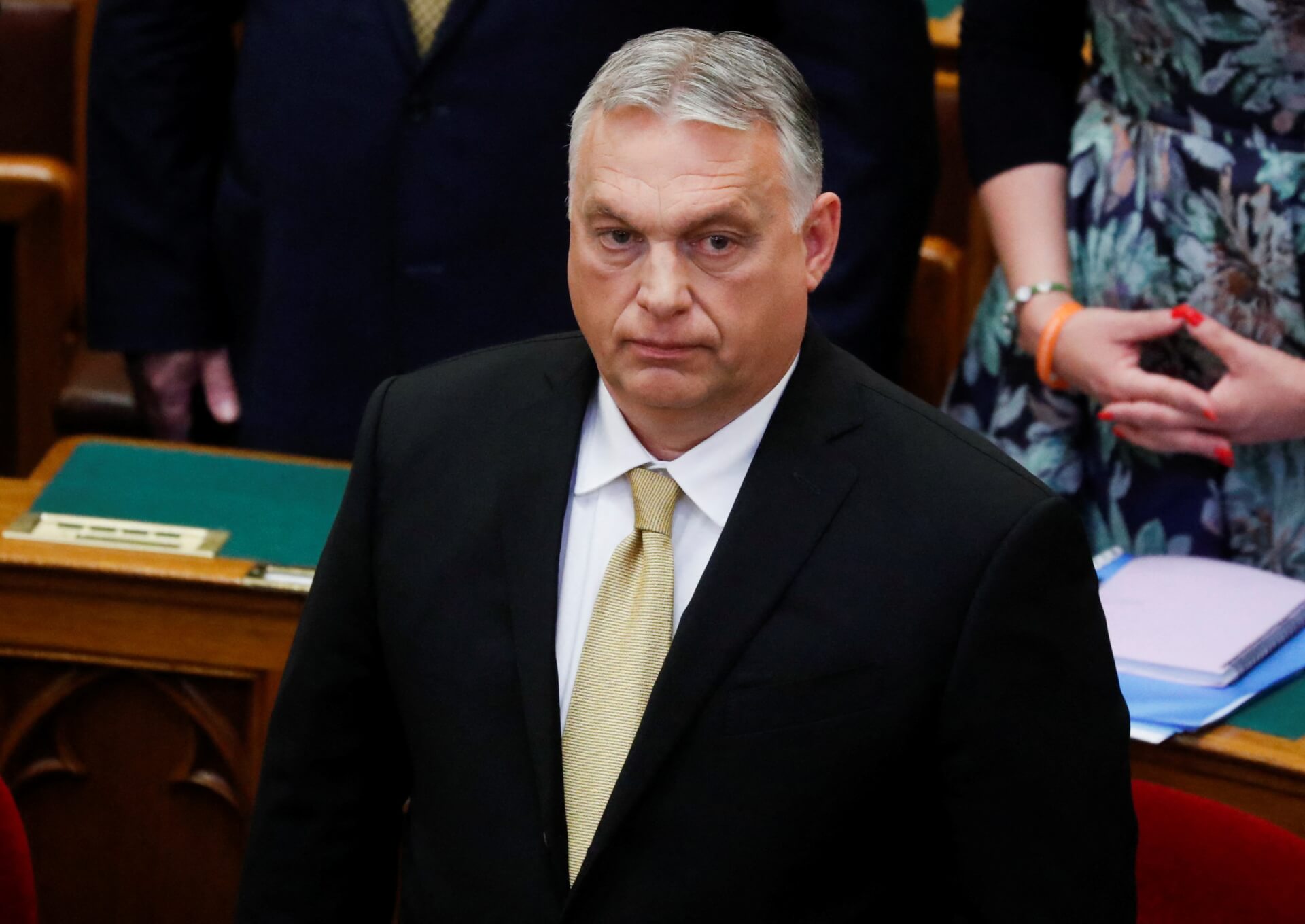Hungarian Prime Minister (PM) Viktor Orbán declared a “state of danger” over the economic repercussions caused by the Ukraine war after the parliament approved a constitutional amendment to allow the leader to declare a state of emergency in case of an armed conflict, war, or humanitarian disaster in a neighbouring country.
In a video message posted on Facebook, Orbán, who won a historic fourth consecutive term last month, said the Russian invasion presents a “constant threat to Hungary, our physical safety, the energy supplies and financial safety of families and the economy.”
“We have seen that the war and sanctions from Brussels have brought about a great economic upheaval and drastic price rises. […] Hungary has to stay out of this war and has to protect the financial security of families,” he added. Therefore, PM Orbán claimed that the state of emergency will empower the government to use “all methods at its disposal” expeditiously to protect the country.
The "state of danger" is not a new thing - until 31 May 2022, the covid-19 related state of danger is in force, also allowing the government to skip the parliament. @DanielHegedus82 explains why this was already problematic: 3/ pic.twitter.com/G3l1LKSI6n
— Jakub Jaraczewski (@J_Jaraczewski) May 25, 2022
Under the new legislation, which was passed 136-36, a special legal order can be announced “so that all necessary means are available to assist, support and accommodate people fleeing the situation, and to prevent the adverse economic effects of the situation and mitigate the consequences.” It allows the government to enact laws by decree without involving the parliament and authorises the temporary suspension of and deviation from existing laws.
The Hungarian leader had first introduced such an order during the European migration crisis in 2016, which was extended in some form over the years despite Hungarian borders being closed. Similarly, in March 2020, Orbán bestowed himself with the power to rule by decree. Although the measure was ostensibly enacted to prevent the spread of the COVID-19 virus, it was instead used as a pretext to undermine gender equality and the rights of LGBT people, asylum seekers, and migrants—all of which feed into a broader backsliding of the rule of law in the country.
Emese Pasztor of the Hungarian Civil Liberties Union released a statement on Tuesday saying that the government is “once again adapting the rules of the game to its own needs.” “By always allowing the possibility of introducing a special legal order in the future, it will lose its special character. It will become the new normal, which will threaten the fundamental rights of all of us, and rule by decree will further diminish the importance of Parliament,” Pasztor wrote.
Just days after receiving congratulations for his election "win" from @vonderleyen & @eucopresident, Orban tightens his authoritarian grip to power, disempowers Parliament and keeps ruling by decree.
— Daniel Freund (@daniel_freund) May 25, 2022
He does not care about democracy. And he went unpunished for way too long.
With his latest election victory on April 3, Orbán became the longest-serving European leader, securing another four-year term in office. His newly-appointed cabinet has to deal with several challenges, with annual inflation at 9.5% and a budget deficit owing to excessive pre-election expenditure.
His government is also in a constant battle with EU nations over rule of law concerns. In fact, the European Commission launched an Article 7 process against the right-wing government four years ago due to the country’s worsening performance with regard to LGBTQ rights and illegal surveillance against journalists and businessmen.
Thing is this just preserves status qou ante -allows #Orban to keep pandemic decree powers (effective continuously since March 2020) in place under new name when no longer tenable given absence of #Covid. “The more things change the more they stay the same”. https://t.co/XsSERDtwcE
— Alex Faludy (@AlexanderFaludy) May 24, 2022
However, according to Dániel Hegedűs, an analyst at the German Marshall Fund, the hearings have led to “practically nowhere.” It has, however, emboldened the Hungarian government, with Minister of Justice Judit Varga saying, “People are also following European events, and their response to the Article 7 procedure is that they support the Hungarian government’s policy on Europe and on all other issues related to the rule of law… And a mandate of more than three million voters overwrites everything and gives the right answers to everything.”
Additionally, the EU has also launched a budget conditionality mechanism, through which Budapest could lose its EU funding if it fails to fight against corruption. Nevertheless, the bloc also needs Orbán’s support, as he’s against imposing an oil embargo on Russia as part of the latest sanctions package. Furthermore, he agreed to make payments for Russian natural gas in rubles last month—a departure from the EU’s position on the controversial issue. Though Orbán has maintained a largely pro-Russia stance, he has also condemned Russia’s invasion of Ukraine.

